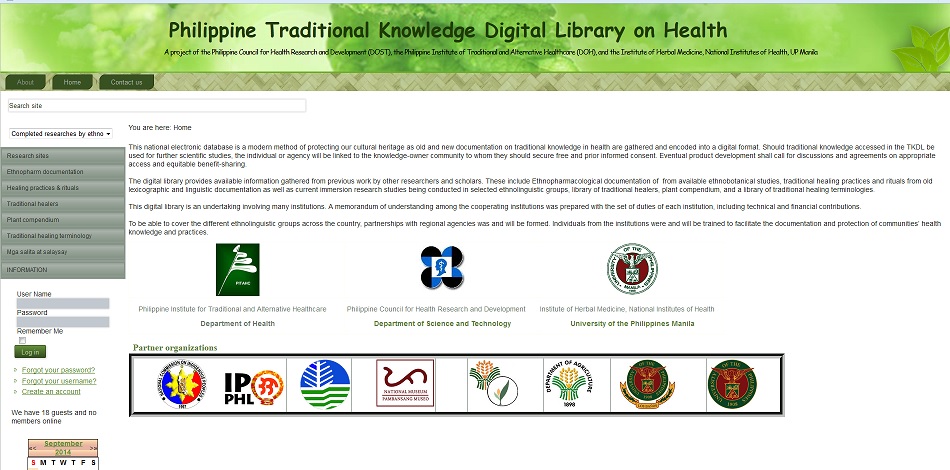 To protect indigenous peoples’ claim to their cultural heritage, the University of the Philippines Manila (UPM) developed the Philippine Traditional Knowledge Digital Library on Health (TKDL-Health), a digital library of the country’s traditional knowledge and practices on health, healing and diseases.
To protect indigenous peoples’ claim to their cultural heritage, the University of the Philippines Manila (UPM) developed the Philippine Traditional Knowledge Digital Library on Health (TKDL-Health), a digital library of the country’s traditional knowledge and practices on health, healing and diseases.
In an email interview, Dr. Isidro C. Sia, a faculty of the University of the Philippines Manila –the Philippine TKDL-Health program, discussed that the TKDL-Health website helps prevent private entities from laying exclusive claim to the therapeutic practices or medicinal products of indigenous groups by creating proof of ownership for the traditional knowledge.
Dr. Sia cited India’s successful use of their own TKDL website to revoke a US patent on turmeric as an example on how TKDL can be used as evidence for the ownership of the traditional knowledge.
The TKDL-Health (www.tkdlph.com) is a database of information on traditional knowledge on health, illness, and healing gathered from the documentary studies done among indigenous peoples and other cultural communities. To date, there is information on 13,900 medicinal plants.
Through the program, researchers and community members can work together as partners to catalogue the folk traditions in health, and in the process, advocate for the protection of the cultural legacy of the Filipinos.
TKDL-Health is a project supported by the Philippine Council for Health Research and Development of the Department of Science and Technology (PCHRD-DOST), the Philippine Institute of Traditional and Alternative Health Care (PITAHC), and the Institute of Herbal Medicine (IHM) of the UPM – National Institutes of Health (UPM-NIH).
